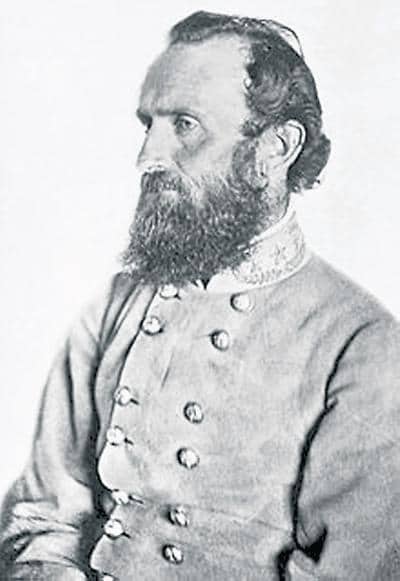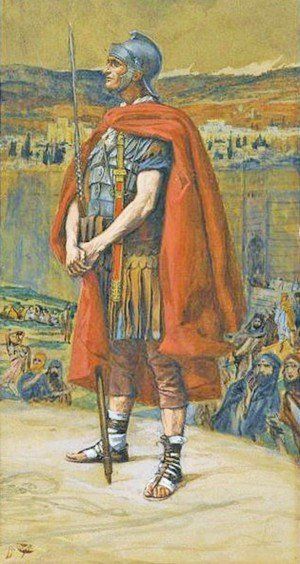
‘Father, forgive them for they know not what they do’ (Luke 23:33-34)
Dying words hold a strange fascination for us. Army general and Christian Stonewall Jackson’s last words were: ‘Let us pass over the river and rest under the shade of the trees.’ The last words of the historian Edward Gibbon were: ‘All is dark and doubtful.’ James Madison’s last words were: ‘I always talk better lying down.’ The dying words of America’s greatest theologian Jonathan Edwards were: ‘Where now is Jesus, my never failing Friend?’ And Karl Marx’s last words were: ‘Last words are for fools who haven’t said enough.’
It is not mere fascination with dying words, however, that compels us to study the dying words of the Lord Jesus Christ. We study them because Jesus was not an ordinary man, his death was not an ordinary death sad his dying words were not ordinary words. Someone has estimated that the Romans had crucified 30,000 men in the land of Palestine before they ever nailed Jesus of Nazareth to his cross. But when they crucified Jesus, they crucified the greatest man who eve lived and they created the greatest occasion in human history, the occasion in which eternal salvation was provided for all those who believe. We study these words, then, because the greatest man who ever lived spoke there on the greatest occasion in human history,
The dying words of the Lord Jesus consist of more than one statement. He was nailed to the cross at nine in the morning, and he finally died six hours later. In that six-hour span, the Lord Jesus spoke seven times. Each of those seven dying statements is packed with meaning for the Christian. The dying words of a loved one are always treasured words, and the Christian loves the Lord Jesus Christ more than life itself.
Three of the seven statements are addressed to God, and in two of them our Lord uses the word ‘Father’ for God. This should not come as a surprise to us. Jesus walked in close, intimate fellowship with God every day of his life. One of the expressions of this close fellowship was his prayer life.
Luke goes to great lengths in this gospel to show us the vital role prayer played in the life of Jesus. He tells us Jesus prayed at his baptism (3:21), before selecting his disciples (6:12), on the Mount of Transfiguration (9:28-29) and on the night before he was crucified (22:41,44). He also tells us Jesus ‘often withdrew into the wilderness and prayed’ (5:16).
In addition to praying himself, the Lord taught his disciples to pray. His parable of the persistent widow was intended to drive home the point that ‘men always ought to pray and not lose heart’ (18:1).
‘Then Jesus said…’
Let us examine this first prayer of the Lord from the cross. Note, in the first place, the time of it. Luke introduces it with this pregnant phrase: ‘Then Jesus said…’

What was Luke saying?
When is ‘then’? By using this phrase, Luke underscores for us all the things that had happened to Jesus in the hours that immediately preceded his crucifixion. What solemn, terrible hours! Taken into custody in the middle of the night and thrust through legal proceedings that were themselves illegal; mocked, ridiculed and spat upon; scourged until his back was shredded into a bloody, raw mass; crowned with a crown of thorns! Paraded and prodded through the streets of Jerusalem and up the hill of Golgotha; nailed to a cross that was callously and unfeelingly dropped in the hole prepared for it.
Now he is suspended between heaven and earth. Blood is streaming down his body. A multitude of people are staring and gawking at him. Every nerve is screaming in anguish.
Luke’s ‘then’ captures and comprehends all of these things. After all the humiliation, after all the pain, after all the ridicule, after all these things, the Lord spoke, and the first words that fell from his parched, cracked lips was ‘Father’.
Do you see the significance of it? In the midst of the most horrrifying circumstances imaginable, Jesus could still call God ‘Father’.
The night before he was crucified, the Lord Jesus had asked the Father to remove the cup of suffering he was experiencing there on the cross. The Father had not removed it, and now Jesus was already drinking the first bitter dregs of that awful cup. But his faith in God and love for God were still intact.
Are you angry over bitter and adverse circumstances that have come your way? Learn from the Lord Jesus Christ on the cross. Learn to trust God in the midst of difficulty and searing trial. Learn to say with the songwriter:
When darkness seems to hide his face,
I rest on his unchanging grace.
When all around my soul gives way
He then is all my hope and stay.
Father, forgive them,
Think now of the focus of Jesus’ prayer. We might expect to read that he prayed: ‘Father, help me.’ Many people enter the dark recesses of death with this petition upon their lips, but the Lord did not. Given the cruel circumstances of his death, we might expect him to have prayed: ‘Father, consume these people who are crucifying me. ‘But he did not pray this way either. Instead he prayed: ‘Father, forgive them, for they know not what they do.’
In his Sermon on the Mount, Jesus said to his disciples: ‘… Iove your enemies, bless those who curse you, do good to those who hate you, and pray for those who spitefully use you and persecute you’ (Matthew 5:44).
These first words from the cross reveals that our Lord Jesus practiced the very same thing he had preached. His heart of love for sinners is here revealed. By asking God to forgive these people, Jesus was saying, in the words of William Hendriksen: ‘Blot out their transgression completely. In thy sovereign grace cause them to repent truly, so that they can and will be pardoned fully.’
No, Jesus was not excusing their sin. Ignorance does not excuse us for breaking God’s law. But Jesus was describing their condition. Sin does indeed blind us. It had blinded these people to the person of Christ and to the enormity of their sin, and it does the same for us. But, thank God, Jesus cares for poor, blind, ignorant sinners! He takes no delight in sinners perishing. He came to seek and to save sinners (Luke 19:10).
This prayer was abundantly answered. Fifty days after the resurrection of Jews, the apostle Peter stood to preach in Jerusalem. Many in his audience that day had witnessed the crucifixion and Peter did not hesitate to confront them with the wickedness of it all and to call them to repentance. Many of them did not realize until that moment that they had actually been a party to crucifying the very Son of God. But at that moment, their hearts were pierced with the truth On that day alone, many of the wicked who crucified the Lord Jesus repented of their sins and received him as their Lord and Saviour (Acts 2).

A chariot of mercy
The great preacher of the last century, Charles Spurgeon, looks at Jesus’ prayer for forgiveness in a different way. He says: ‘I love this prayer… because of the indistinctness of it. It is “Father, forgive them.” He does not say, “Father, forgive the soldiers who have nailed me here.” He includes them. Neither does he say, “Father, forgive the people who are beholding me.” He means them. Neither does he say, “Father, forgive sinners in ages to come who will sin against me.” But he means them. Jesus does not mention them by any accusing name: “Father, forgive my enemies. Father, forgive my murderers.” No, there is no word of accusation upon those dear lips. “Father, forgive than ” Now into that pronoun “them” I feel that I can crawl. Can you get in there? Oh, by a humble faith, appropriate the cross of Christ by trusting in it; and get into that big little word “them”! It seems like a chariot of mercy that has come down to earth, into which a man may step and it shall bear him up to heaven.’
Spurgeon’s words remind me of the story of the little boy who was mad at his mother. When he knelt beside his bed for his bedtime prayer, he asked God to bless every member of his family except his mother. When he crawled into bed, he looked at his mother and said ‘I suppose you noticed you was not in it.’
Thank God, as Spurgeon points out, that ‘them’ in Jesus’ prayer is large enough to include all who want God’s forgiveness.
‘Teacher, which is the greatest commandment in the law?’ That was the question put to Jesus by a lawyer just a few days before the crucifixion. Jesus responded: “‘You shall love the Lord your God with all your head, with all your soul, and with all your mind.” This is the first and great commandment. And the second is like it: “You shall love your neighbour as yourself.”‘
In saying ‘Father’, the Lord showed he was keeping the first and greatest commandment. In saying ‘forgive them’, he showed he was keeping the second greatest commandment. In other words, the Lord died as he lived-with a heart filled with devotion to God and love for his fellow man.
Lessons for today
Let us turn our attention to the lessons we can learn from this pray a. There are several. First, we should learn to love and trust God no matter how difficult our circumstances may be.
Secondly, we should learn to pray. If the Lord Jesus felt the need to pray, how much more should we.
Thirdly, we should learn to love and forgive others, even when they mistreat us. Stephen, one of the early church leaders, learned from this example of his Lord. While he was dying under the hail of stones being hurled at him, he prayed for his persecutors in much the same way as Jesus had: ‘Lord, do not charge them with this sin’ (Acts 7:60).
Finally, those who do not know Christ should certainly learn that there is forgiveness of sins for all those who come to him in faith and repentance. There is no one too vile or foul for God to cleanse from sin.



